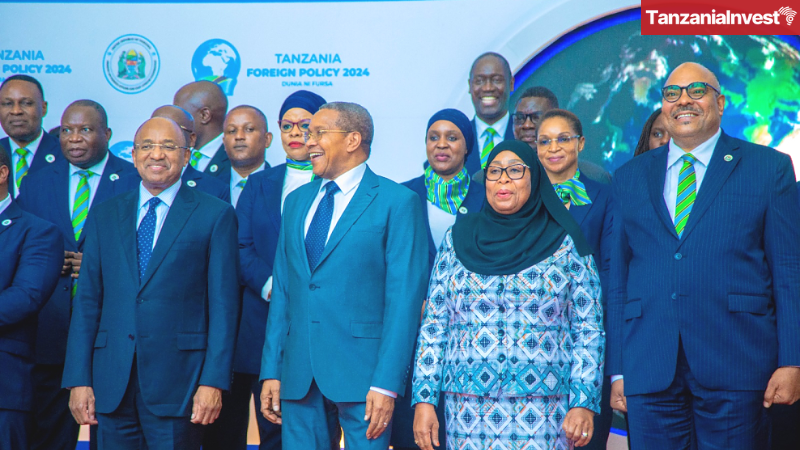On 20 May 2025, President Samia Suluhu Hassan officially launched the revised Tanzania Foreign Policy 2024 in Dar es Salaam.
The new policy introduces priorities including climate change, diaspora engagement, gender and youth inclusion, blue economy, and an expanded framework for economic diplomacy.
Speaking at the launch, President Samia explained that the revision aims to align Tanzania’s foreign policy with the ongoing political, economic, and social changes taking place globally, and to ensure that the country is well-positioned to benefit from regional and international cooperation.
She emphasized that the original principles of Tanzania’s foreign policy remain unchanged, including the commitment to non-alignment, respect for sovereignty, support for African unity, and cooperation within the United Nations framework.
President Samia noted that the updated policy provides a platform for modern diplomacy that responds to emerging challenges, and supports Tanzania’s national development goals through strategic international partnerships.
She further called on the Ministry of Foreign Affairs and East African Cooperation to ensure that the contents of the policy are widely understood and implemented, and warned against foreign interference aimed at destabilizing the country’s longstanding peace and security.
About the New Tanzania Foreign Policy 2024
The revised Tanzania Foreign Policy 2024 introduces a broader and more structured framework aimed at aligning the country’s foreign engagement with global shifts and national development priorities.
The policy outlines ten core areas of focus.
- Economic diplomacy, positioned as the central strategy to promote Tanzania’s trade, investment, tourism, and technological cooperation abroad.
- Peace, security, and political stability, both regionally and globally, including active participation in conflict resolution and peacekeeping missions.
- Management of international agreements, treaties, protocols, and declarations to ensure they are timely ratified, domestically integrated, and serve the national interest.
- Bilateral, regional, and multilateral cooperation, through platforms such as the African Union, United Nations, East African Community, and SADC, aimed at fostering deeper partnerships and strategic alignment.
- Use of Kiswahili as a tool of diplomacy, recognizing its growing status as an official working language within key regional and global institutions, and promoting it as a soft-power asset for Tanzania.
- Resource mobilization, which now includes not only financial resources but also human capital, technology transfer, and innovative financing mechanisms such as diaspora bonds, environmental credits, and international development grants.
- Diaspora involvement, including citizens abroad and people of Tanzanian descent, in national development through investment, remittances, tourism promotion, and international advocacy.
- Development of the blue economy, encompassing sustainable exploitation of marine and aquatic resources, integration of ocean and coastal governance into foreign relations, and mobilization of ocean-related climate financing.
- Promotion and protection of human rights and good governance, grounded in Tanzania’s Constitution and international conventions to which it is a signatory, and implemented through institutional mechanisms and reporting obligations.
- Cross-cutting issues, such as environmental protection, climate change, gender equality, and youth empowerment, which are now formally embedded into the country’s foreign policy decisions, negotiations, and international commitments.
These ten pillars are designed to be interlinked and to respond to Tanzania’s national objectives while enabling greater visibility, relevance, and competitiveness in the international system.










